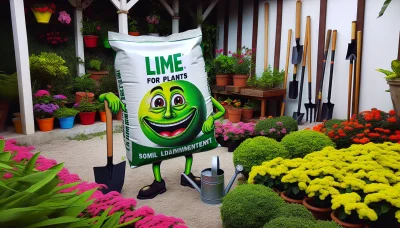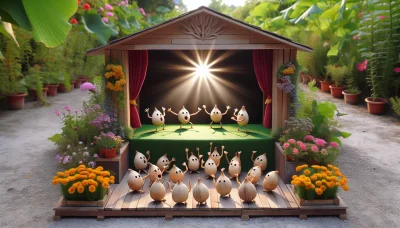Buy ginkgo biloba Quiz
Test Your Knowledge
Question of
The Ultimate Guide to Buying Ginkgo Biloba
Ginkgo Biloba, often revered for its distinctive fan-shaped leaves and remarkable resilience, holds a prestigious position in the world of gardening and herbal medicine. This ancient tree, sometimes referred to as a living fossil, has been gracing the planet for over 270 million years, surviving major extinction events and witnessing the dawn of human civilization. Its historical significance is deeply rooted in traditional Chinese medicine, where it has been used for thousands of years to enhance memory and treat blood disorders. In gardening, Ginkgo Biloba is celebrated not only for its therapeutic benefits but also for its striking beauty and the shade it provides. Its adaptability to various soil types and resistance to pollution make it a favored choice for urban and residential landscapes alike, embodying a living link between the past and present.
Benefits of Ginkgo Biloba in Your Garden
-
Environmental Benefits:
- Improves air quality by absorbing pollutants.
- Supports local wildlife, providing habitat and food for various bird species.
- Highly resilient to pests and diseases, reducing the need for chemical treatments.
-
Aesthetic Value:
- Unique fan-shaped leaves that turn a brilliant yellow in autumn, adding seasonal beauty.
- Can live for thousands of years, becoming a historic landmark in your garden.
- Provides dense shade in summer, creating a cool retreat.
-
Health Advantages:
- Leaves contain flavonoids and terpenoids, which have antioxidant properties.
- Can contribute to reducing stress and promoting relaxation when spending time in a garden with Ginkgo trees.
- Studies suggest that Ginkgo Biloba supplements may improve cognitive function, though it's important to consult with a healthcare provider for personal health advice.
How to Choose the Right Ginkgo Biloba Tree
When selecting a Ginkgo Biloba tree for your garden or landscape, several important factors should be considered to ensure you choose the right one. First, consider the size of the tree. It's crucial to think about both the current size of the tree and its potential growth. Ginkgo trees can grow quite large, so ensure you have enough space for it to mature. Next, the age of the tree can also influence your decision. Younger trees might adapt more easily to a new environment, but older trees can provide immediate aesthetics and shade. Lastly, the health of the tree is paramount. Look for signs of disease or pest infestation, and inspect the quality of the foliage and the structure of the branches and trunk. Choosing a healthy Ginkgo Biloba tree will give it the best start in its new location.
Planting and Caring for Your Ginkgo Biloba
- Soil Preparation: Ginkgo Biloba thrives in well-drained soil. Before planting, mix in some compost or aged manure to enrich the soil. Ensure the planting site is free from standing water.
- Planting: Dig a hole twice as wide and just as deep as the root ball. Place the tree in the hole, making sure it's level with the surrounding ground. Backfill the hole, gently tamping down the soil to remove air pockets. Water thoroughly after planting.
- Watering: Regular watering is crucial for newly planted trees. Keep the soil evenly moist but not waterlogged. Once established, Ginkgo Biloba is quite drought tolerant but will benefit from occasional deep watering during prolonged dry spells.
- Sunlight Requirements: Ginkgo Biloba requires full to partial sunlight. Choose a location that receives at least 4-6 hours of direct sunlight daily. Adequate sunlight is essential for the health and growth of the tree.
- Mulching: Apply a layer of organic mulch around the base of the tree to help retain soil moisture, regulate soil temperature, and reduce weed growth. Keep the mulch a few inches away from the trunk to prevent rot.
- Fertilization: In the first year, focus on establishing the tree without additional fertilizers, unless the soil is very poor. From the second year onwards, apply a balanced, slow-release fertilizer in early spring to support growth.
- Pruning: Minimal pruning is needed. Remove any dead or damaged branches in late winter or early spring. Pruning helps maintain the tree's shape and promotes healthy growth.
Common Problems and Solutions for Ginkgo Biloba Trees
Ginkgo Biloba trees, known for their unique fan-shaped leaves and robust nature, occasionally face challenges such as pests, diseases, and environmental stress. These issues can hinder their growth and health, affecting their aesthetic and ecological benefits. Identifying these problems early is crucial for the effective management and care of these ancient trees.
- Pests: Aphids and scale insects may infest Ginkgo trees, sucking sap and weakening the tree. A solution is to use insecticidal soap or neem oil treatments to control these pests.
- Diseases: Ginkgo trees are generally resistant to many diseases, but they can sometimes suffer from fungal infections like leaf spot or root rot. Improving air circulation and avoiding overwatering can help prevent these issues. For existing infections, fungicidal sprays may be necessary.
- Environmental Stress: Ginkgo trees can experience stress from improper planting locations, inadequate water, or pollution. Ensuring they are planted in well-draining soil, receiving sufficient water, and situated away from heavily polluted areas can mitigate these stresses. Mulching can also help maintain soil moisture and temperature.
Where to Buy Ginkgo Biloba Trees
For those looking to add Ginkgo Biloba trees to their garden or landscape, there are several excellent options to consider. Nurseries, especially those specializing in trees or exotic plants, often carry a variety of Ginkgo Biloba trees. Online stores are another convenient option, offering a wide selection of sizes and species that can be delivered directly to your door. Gardening centers, both local and national chains, frequently stock these trees, particularly in the planting seasons, providing an opportunity to select the perfect tree in person. Each of these outlets provides a unique set of benefits, from expert advice at nurseries to the convenience and variety found in online stores and gardening centers.
Conclusion: Enhancing Your Garden with Ginkgo Biloba
Ginkgo Biloba, an ancient tree with a rich history, offers a multitude of benefits that can significantly enhance your garden. Not only does it bring a unique aesthetic appeal with its distinctive fan-shaped leaves, which turn a stunning yellow in the fall, but it also provides environmental benefits such as improved air quality and resilience to urban pollution. Furthermore, Ginkgo trees are known for their robust nature, making them an excellent choice for gardeners looking for low-maintenance yet visually striking plants. By incorporating Ginkgo Biloba into your outdoor space, you're not just adding a piece of living history to your garden; you're also creating a healthier and more vibrant environment. Consider embracing the timeless beauty and myriad benefits of Ginkgo Biloba in your garden today.












